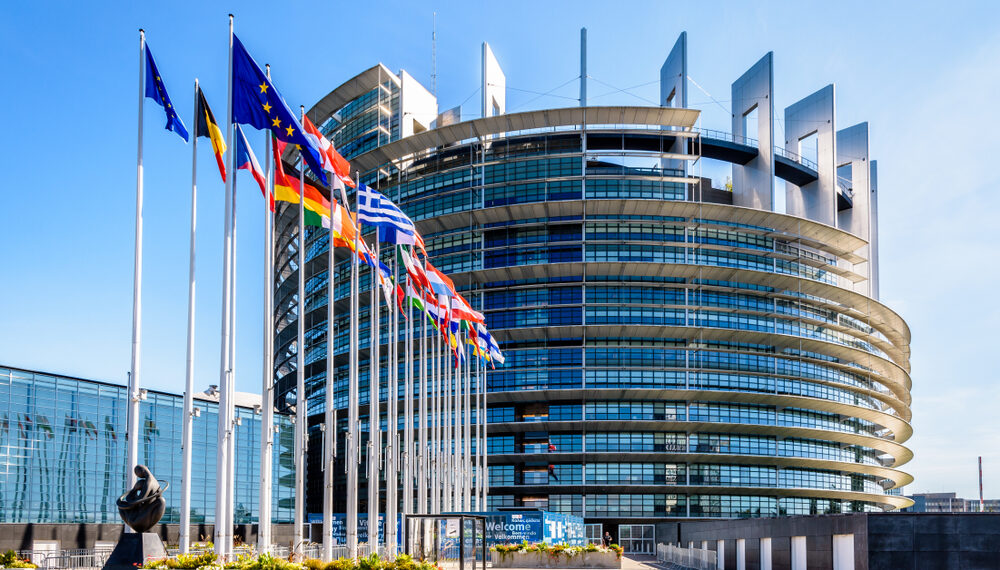
Summary
- The upcoming EU elections could impact the crypto and digital asset sector, especially since 70-80% of European Parliamentarians (MEPs) are likely to be newcomers voted into office.
- All indications are that the June election will likely see the political center of gravity move slightly to the right, indicating a potential policy shift, including for the digital asset and crypto sector.
- Crypto policy is not seen in Europe as being a left or right issue, but policy-making is likely to be a challenge in a more fragmented EP.
- Read more in CCI’s EU Elections blog series.
Exploring the Impact of MiCA and Transfer of Funds Regulations on Crypto
To date, the most notable piece of legislation that the EP has drawn up is the Markets in Crypto Assets (MiCA) regulation. This regulatory framework is designed to protect investors, provide legal certainty and promote EU-wide transformation in the digital asset sector. It is a comprehensive attempt to create a cohesive approach to crypto asset regulation throughout the EU, and streamlines cross-border activities with an ‘EU passport’ to operate throughout the single market from a base in any one Member State. The legislation, the first phase of which will apply as of mid-2024, imposes requirements on crypto asset issuers and service providers.
Another important piece of legislation is the Transfer of Funds Regulation. In April 2023, rules were agreed to trace crypto-asset transfers, with the EU’s inclusion of the ‘travel rule’. These provisions will begin to apply at the same time as MiCA. This means that information about the asset’s source and beneficiary has to ‘travel’ with the transaction and be stored on both sides. The legislation places due diligence requirements on crypto asset service providers (CASPs) regarding crypto transactions, including when interacting with self-hosted wallets that CASPs manage.
What does the EU’s Political Landscape Shift to the Right Mean for Crypto?
The forthcoming European Parliament (EP) elections are expected to see a turnover of between 70%-80%, so there will be plenty of new politicians coming to Brussels and Strasbourg. This will provide an opportunity for the crypto industry to engage fresh with new policy-makers, explaining the industry and its development, and educating about the diverse products and services – financial and non-financial – that the ecosystem encompasses.
According to the latest poll of polls, the Christian-Democrat, center-right European People’s Party (EPP) will likely remain the largest party, but may still return its lowest number of MEPs since direct elections began (potentially dropping a handful of its current 177 seats).
Meanwhile, the right-wing European Conservative and Reformist (ECR) Group, currently 68 MEPs, including PiS (Poland), Brotherhood (of Italy) and NVA (Belgium), will likely add approximately 12 MEPs, given the popularity of some of its larger delegations in several Member States.
Finally, one of the biggest winners on the right is predicted to be the Identity and Democracy (ID) group, which includes the likes of Rassemblement National (France), Lega (Italy) and Vlaams Belang (Belgium). ID could increase its size significantly from its current 59 to approximately 75-80 MEPs, but will likely remain a disparate group of nationally-focussed parties.
On the center left, the Socialist & Democrat group will do well to broadly maintain the status quo (141 MEPs), not least given few opportunities for significant gains in larger Member States.
The outlook is less rosy for the liberals, grouped together as Renew Europe; they’re expected to lose around one-fifth of their existing 102 seats. The same can be said for the Greens/European Free Alliance, currently with 72 MEPs but forecast to drop to the low 40s.
How Will Growing Politicization in the EP Affect Crypto Policy-making?
Crypto policy is not seen in Europe as being a left or right issue, but the requirement to work together, combined with diverse views throughout the House could make crypto policy-making a challenge in the incoming EP.
Overall, fragmentation and politicization will make consensus-building in the EP harder. The adoption of legislation requires a simple majority of MEPs (50% + 1), and as such, the European Parliament has always worked on consensus-building between groups. Historically, a majority has usually been built around the traditional, center parties – the EPP, S&D and Renew.
In the outgoing EP, ad hoc support from other center-left (Greens/EFA) or center-right (ECR) parties was sufficient to secure a majority. In the incoming EP, however, it may be harder to build cross-party consensus, with perhaps no natural center-left or center-right majority, without including the political fringes. As a result, left-leaning parties may struggle to work with more populist far-right parties and vice versa. This could lead to more protracted, complex policy-making processes.
Irrespective of the final numbers, it seems likely that policy development in the EP will take a more conservative tilt. The EPP will campaign on conservative values, taking tougher stances on issues such as immigration, in an attempt to shore up its traditional, Christian-Democrat voter base from attacks by populist parties further on the right. Subsequently, even if the far-right parties are traditionally reluctant to actively contribute to EP policy work or are shunned by the mainstream parties, they have a very direct impact on the direction of policy due to a hardening of policy positions by centrist parties.
Policy Outlook in a Shifting Parliament
One thing is certain, there is a gap in the market for groups and individuals who are looking to make a name for themselves in this developing policy area.
Some of the center-right delegations tend to have stronger ties with the US and be free market in their outlook, which could suggest support for enabling policy for new, innovative technologies.
On the other hand, some delegations in the same groups favor a more paternalistic, protectionist stance, which could resist new, global operators. These international, private-sector actors are often regarded as a threat to traditional, home-grown incumbents/national champions.
Similarly, the centrist parties do not have a unified view of the crypto industry, with some individual MEPs more open to digital assets than others and with no consensus for or against. It does not seem that digital assets policy, or even broader financial services policy, will be a top priority for the incoming EP. This is likely to enable policy-makers to focus on effective and consistent implementation and enforcement of the rulebook the EU has developed as a global early mover.
Note: For more information about the EP elections, check out the EP election official website. For political stances, most of the EP’s groups have produced election manifestos, which offer further information about specific policy visions, including: EPP; S&D; ALDE/Renew Greens; The Left; ECR – vision for Europe and ID (no manifesto available).




